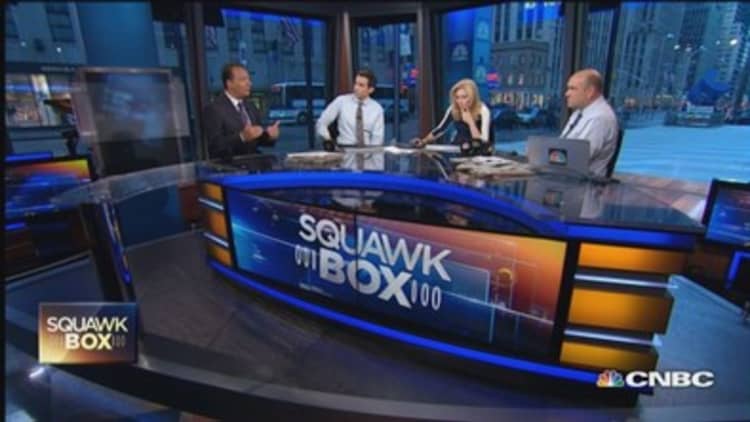
Investors should be cautious heading into the first U.S. interest rate increase in years, but any pause in the Fed's upward path presents a buying opportunity, strategist Jason Trennert said Tuesday.
Unlike past tightening cycles, the central bank is unlikely to hike rates steadily—for example, by a quarter percentage point at each meeting of the Federal Open Market Committee, the chief investment strategist at Strategas Research said. Instead, the FOMC will probably pause for a couple of meetings as it assesses how the next rate rise will affect financial conditions.
Presumably, that staggered schedule would open opportunities for traders to analyze which securities will rise and which will fall as the Fed either pauses or proceeds with rate hikes.
"That could be a very important, very powerful signal for risk-on trade later on this year," Trennert said on CNBC's "Squawk Box."
Read More Time to get out of US stocks: Mobius
The Fed's benchmark federal funds rate—the interest charged to banks for short-term lending to other financial institutions—has remained near zero percent since December 2008.
The market is going to have "a little temper tantrum" when the Fed eventually raises rates, but it will come to terms with monetary policy tightening, said David Katz, chief investment officer at Matrix Asset Advisors.
"Going from zero to a quarter percent is very, very manageable for the economy, and it should be manageable for the stock market," he said on "Squawk Box."

When asked if current market volatility is driven by uncertainty over the Fed's path of monetary policy, Katz said the swings represent a return to normality, and their absence in recent years has been abnormal.
Still, he noted that interest rate uncertainty and the fact that valuations have risen significantly, certainly contribute to volatility.
"There are a batch of things going on, but that's a reality of equity investment and that's why you get paid more than you're getting in the bond market," Katz said.


